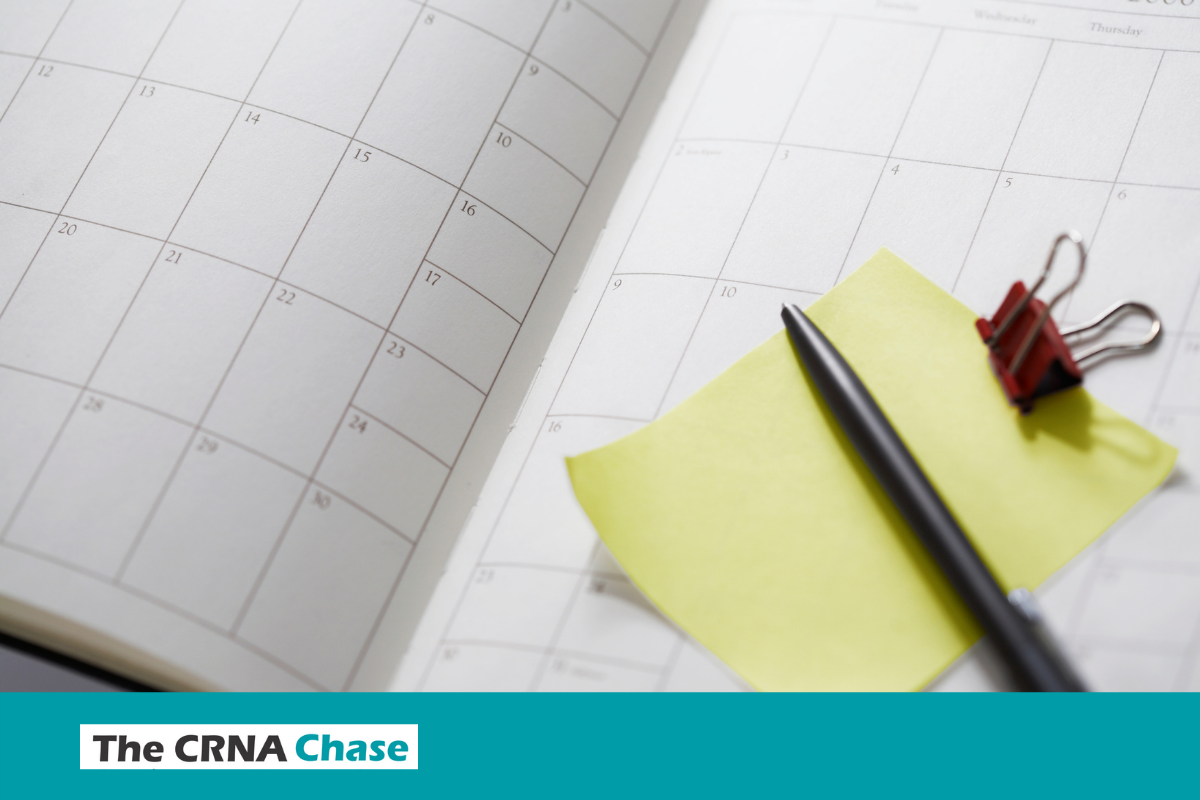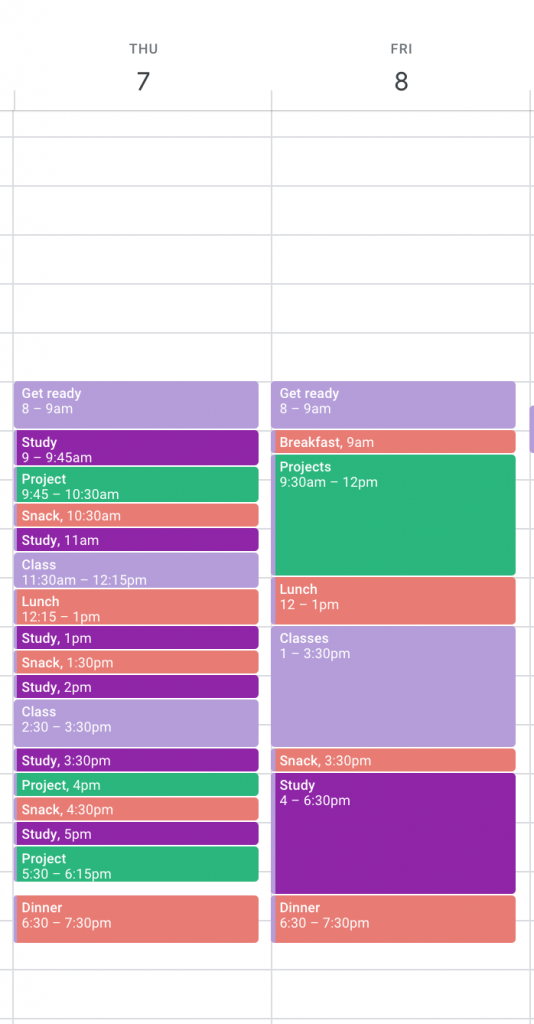This post may contain affiliate links. Please read my disclaimers for more info
I felt well prepared and ready to get started on the first day of CRNA school when I walked into my class. But that feeling faded quickly when I realized I had grossly underestimated the volume of information and material I would be receiving that day.
In fact, I wasn’t alone because most student nurse anesthetists struggle initially when they start school. They become overwhelmed with the volume of work and the pace of the program. I, like many others, started the program off on the wrong foot because you just don’t know what to expect or what’s to come.
Unfortunately, CRNA school doesn’t wait for you to catch up. And a student’s level of preparation when starting the program will play a critical role in their performance and success while in the program.
Organization tips for CRNA school
This is the reason I created a list of helpful organization tips for CRNA school, so you don’t have to struggle like so many others before you. There are definitely some things you can start thinking about today.
How to get started
But first, gather all the information you’ve received from admissions about the program you will be attending. Check your email and mailbox often as you will begin receiving lots of information about the huge undertaking you are embarking on.
Everything from financial aid to syllabus to books needed to purchase. Just take your time going through them and be sure to send back any information they ask by the deadline. Also this will help you become more prepared for the start of CRNA school.
Make an awesome study schedule
Studying is a critical part of your academic success in CRNA school. Most CRNA programs state you will be studying on average of 50-70 hours per week. However, you will quickly notice finding time to study all the information coming your way will be difficult. Therefore, creating a solid study schedule will help tremendously and keep you on track.
Now with your curriculum or course syllabus in your possession it’s time to rock and roll. This will allow you to really create a realistic and personalized schedule. Instead of saying I will study for 2 hours you can now set a time to study from 2-4pm. You will also be able to see exactly how you spend your time and what areas you can become more efficient and productive in.
Remember you can’t study non stop. So be sure to include breaks in your schedule. This will allow your brain to refuel and refocus. A great productivity tool is Pomodoro technique. The idea is rather than spend all day studying, you study for example 25 minutes then take a 5 minute break. These breaks help keep you fresh and not burnt out which allows you to retain the information you are studying.
Schedule everything
This is known as time blocking. Which is the practice of planning out every moment of your day in advance according to certain tasks and responsibilities. By scheduling every minute of your day you are able to limit distractions and it allows you to focus more on the task at hand. This is a great productivity method.
While this will be labor intensive and require a lot of planning it will be worth it if you can increase your productivity and focus all in one. But it’s not just a normal “schedule” or to-do list, it’s a mix of both of them that leaves you knowing how you will tackle each day.
How to block off time- basically this is all about time management.
- Start by choosing the tasks which are high-level priorities. This will determine what goes into your daily schedule and how you block your time out for the day.
- Take out your syllabus and transfer important dates to your calendar or planner on paper or electronically. I am more of a pen and paper type of girl and my favorite planners are made by PlanAhead See It Bigger like these here on Amazon.
Apps for CRNA students
When it comes to studying I found it was always easy to get lost in the abundance of notes, flashcards, mind maps and endless material. That’s why I collected a list of apps to help you become as efficient as possible.
- Evernote: Is a free tool with ready made templates for easy notetaking which allows you to become productive right off the bat. This way you don’t have to worry about formatting or design. It also comes with its own email address so you can forward things from your own personal email into Evernote.
- Dropbox: It’s a convenient way to organize files, take notes, and prepare for presentations and exams. A great feature of Dropbox allows you to keep all your important documents and files in one location. And you can also access it from devices like your personal laptop, iPhone, iPad and Android devices.
- Keynote: Again, while in CRNA school you will be required to collaborate with your fellow peers on projects and presentations. And if you have a Mac device then you will find Keynote creates stunning and memorable presentations. Some great features include:
- Play YouTube and Vimeo right inside app
- Present over video conference
- Outline view to jot down thoughts and concepts
- Scribble and Apple pencil converts your handwritten words to typed text
- Google Drive: This is my favorite tool whether on my device or laptop. My favorite thing about it is you can access it anywhere. I also love the talk to text function within the app. And it has t the ability to organize all sorts of files.
Try out some of these apps before starting school so you’re not having to learn a new tool when you should be studying.
Bottom line
While I am super excited for the next phase of your CRNA school journey, I also want you to be prepared for what’s coming at you. Hopefully, these tips will help you do just that so you can enjoy the process AND focus on your studies.
P.S. Are you anxious or worried about your upcoming start to CRNA school, book a strategy session to discuss ways you can prepare further and eliminate this negative thinking.








